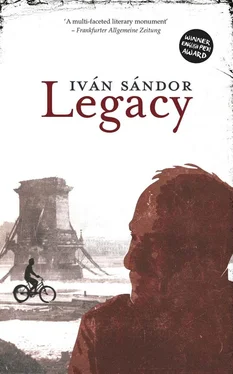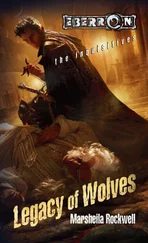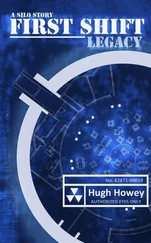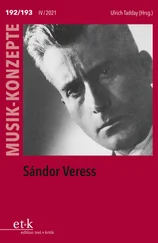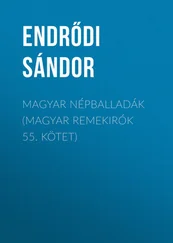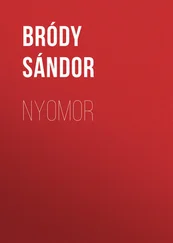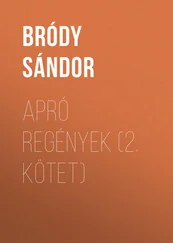Mother attempts to push through the crush of people. She is calling out Gizi’s name.
I’ve already said, no shouting.
But she’s here. I can hear her voice.
I got used to everybody shouting all at once back at the brick-works. I can pick familiar voices out of the noise.
Father’s voice is the same as months ago; he has regained his confidence. Your mother is freezing cold up there. We won’t go back. I’m also freezing, says Vera. Better the cold than the dark, the crush, the shouting and whimpering all over again, is what I think. I can hear you, I can hear you, Mother keeps repeating, although I don’t ask what she hears. Almost certainly Gizi’s voice. It is difficult for two at once to pass through the doorway to the cellar. I am being shoved from behind — a man would like to bring out a little child in his arms, and we make room for him. Make way, air, he is calling out. Mother shouts out again that she can hear Gizi’s voice, but she cannot find her. Someone says that a man was calling out Gizi’s name a few minutes ago, but he wasn’t unable to find her either.
The cellar is L-shaped. Two lamps provide the light. The walls are dank, the ceiling is supported by timber beams. There must be a ventilation slit somewhere, because the lights of the lamps are quivering in a draught.
The cries are more muffled. Names, instructions, calls for help blend into one. I say to Father, shouldn’t Mother shout Gizi’s name, but he says nothing to her. He would like to take off his haversack, but there is not enough room. I help him, with Vera taking her small suitcase.
Gizi shouts out Mother’s name from the cellar doorway. She is wearing a black headscarf that has slipped over her eyes. She is gasping for breath, jostling the people around her. Mother embraces her; Vera, horrified, hangs on to me. I cannot hear what Mother is saying, but Gizi seems to be reassured.
Frau Gizella! Frau Gizella! Schnell! Schnell!
Mother says that we have rations for two days. Gizi says she will try to find some food, but she doesn’t know where. The Arrow Cross Minister of the Interior has ordered that everyone must be taken into the ghetto from the protected houses as well. In return for dropping that plan, Raoul Wallenberg on behalf of the Swedish Attaché and Carl Lutz on behalf of the Swiss Legation had offered their stockpiles of food reserves for the protected houses. She would make every effort, but she had to dash now. Lutz had to see to things elsewhere. She was sticking with him; she would be back as soon as she could. She had two apples in her pockets and gave one to me, the other to Vera.
There is no longer an officer’s cap on the warden’s head. He raises one hand to his brow and salutes Gizi.
People are seated on mattresses; room has been made for the sick as well. Squeeze up to let this family in. The warden makes arrangements. Father gets Mother to sit down on the edge of a mattress; Mother pulls Vera over. Father also finds enough room to set down his haversack. Someone holds it. The physicist. He is seated on a sack and pulls me down next to him. As far as I can tell the sack contains potatoes. It has to be guarded. It’s communal, belongs to the house — best if we sit on it.
I ask the physicist what his name is. He grins and offers his hand; he says only his Christian name, László. I also introduce myself by my given name. He has slender, bony fingers. The skin on the palm of the hand is warm and delicate; it is a pleasure to hold. I tell him that I have a pass as a Levente ARP messenger but have not yet had occasion to use it. Does he think it would be possible to go about on the streets with that? I dig it out of the inside pocket of the duffel coat while he fishes his spectacles out of his inner pocket. Wearing the glasses he really does look like a professor. He reminds me of my natural-history teacher. He also had glasses like those with thick black frames, and he looked over the skulls and the sponge models of human organs in his collection in just the same way before picking something, holding it in his hand so we would be able to see it better.
He squints and his features tighten up. He gives me the papers back. Don’t use it. Put it away. It’s good as a souvenir.
Is it a bad one?
It might be a pity to try it out.
From year 3 we had physics lessons, I tell him. I finished year 4 in May, but I wasn’t able to go to back to school after this autumn. He asks if I liked physics. Not a lot; I preferred Hungarian and history. It doesn’t matter if you don’t like physics, but it will help you think clearly. I know that; the teacher said so as well. He asks who was our teacher, and I give him the name. He is great scientist; it’s just that those idiots have not allowed him to teach at the university since the Jewish laws were brought in during the thirties. He carries on talking as though it was not me he was speaking to but quits his gesticulating as there is not enough room.
A call for a doctor can be heard from a corner at the back. A short man in a beret hurries over; he has a Red Cross armband and is gripping a doctor’s bag under one arm. The warden shouts out four names from the head of the cellar. Today’s water-carrying brigade; they should be at the main gate in ten minutes’ time. I’ll go with them. I tell Father I’ll take a quick look around and promise to be back in five minutes. Let him stretch his legs, the physicist says; he needs the exercise.
I try to tiptoe my way out and keep bumping into bodies. It is hardest of all to move forward in the shorter leg of the L-shape. When I get to the bend I am helped by the glimmer of light from the cellar head.
The warden’s wife speaks in the same military voice as her husband. Just as tall, and she, too, goes around in a short fur-lined overcoat. She has a pointy nose; her chin is protuberant. They have a daughter whom I have not yet seen. She is said to be eighteen years old, ill and has to lie in bed, so maybe it was because they could not take her away that they stayed in a yellow-star house.
Three of the men who had been designated to carry water were standing at the gate. The warden is again wearing his old officer’s cap. One of the men asks him where he acquired it. It’s from the First World War, he says. One of the men in the cellar had been a first lieutenant in the First World War. He asked him for it. If he was a first lieutenant then he could also take a job on, the man comments. He’s ill, says the warden. He has spells of amnesia.
I do not know what amnesia is, but fortunately neither does the man, because he asks. Loss of memory, says the warden. He remembers nothing? That I can’t say; I can’t concern myself with everything. Where’s the fourth bloke who’s been assigned?
The man with the Red Cross armband makes a hurried appearance. Sorry, he says, it was hard getting past the people. You stay here, says the warden; you are needed here. Today I’ll be the fourth. We start in five minutes. Get the buckets ready.
Anyone who’s curious about what amnesia is like can ask the doctor here, he says, but there are times when he himself cannot recall things. You’re healthy, says the doctor; I’ve already taken your blood pressure.
From the front gate I can see that new anti-aircraft batteries have been placed in firing position by the Comedy Theatre. A caterpillar-tracked tank wheels out of Csanády Street, a couple of streets away, with a black-uniformed SS soldier in the turret scanning the road with binoculars. Two women, shopping baskets in hand, hasten to the far side of the road. An Arrow Crosser is approaching and changing the magazine in his submachine gun as he walks. An old man shouts to two children from the doorway of the house next door that they should clear off into the cellar.
Читать дальше
